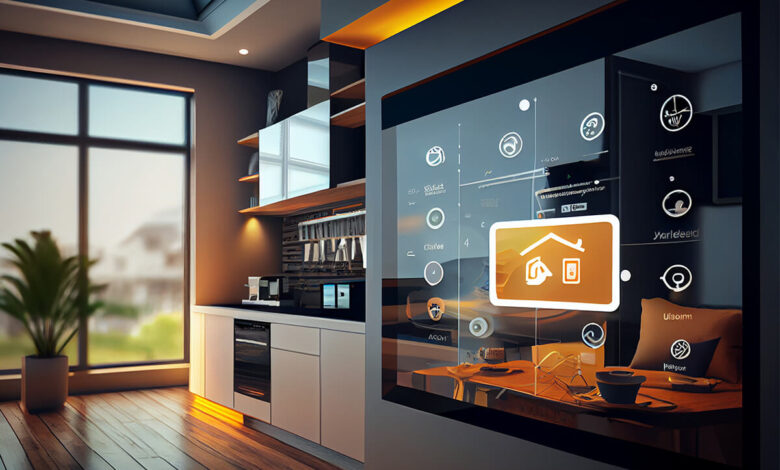Transform Your Living Space with Energy-Smart Heating and Cooling Solutions

The modern homeowner confronts the dual challenges of maintaining household comfort and managing ever-increasing energy costs. Energy efficiency, an integral component of sustainable home living, makes it possible to minimize waste while enhancing comfort and convenience. It’s not just about cutting costs but also about committing to a lifestyle that is environmentally conscious and future-oriented. Adopting practices that optimize energy use can reduce your overall energy footprint, supporting global sustainability efforts. Today, with the rise of advanced technologies and strategic methods to reduce energy consumption, focusing on energy efficiency is no longer a choice but imperative for maintaining comfort without financial or environmental compromise.
Benefits of Energy-Efficient Heating and Cooling
Investing in energy-efficient heating and cooling solutions brings many benefits, transcending the immediate financial savings on utility bills. Significant reductions in monthly energy expenses are at the forefront, providing immediate and tangible savings that can contribute to long-term economic well-being. Beyond cost-efficiency, these systems actively contribute to environmental conservation by reducing a household’s carbon footprint, thus aligning with broader efforts toward global sustainability. For example, heat pump installation in Boston has gained attention as a practical response to rising energy costs and local climate goals, offering an efficient alternative to traditional heating systems in colder regions. Additionally, these systems can enhance indoor air quality, a vital consideration for health-conscious homeowners. They often incorporate modern filtration systems capable of substantially reducing allergens, pollutants, and particulates, promoting a healthier indoor environment. Furthermore, energy-efficient systems typically operate with a reduced noise output compared to conventional systems, creating a more serene home atmosphere while delivering effective climate control.
Choosing the Right System for Your Home
Selecting the right HVAC system is a decision that requires thorough consideration of multiple factors, including your home’s size, the climate of your local area, and your budgetary constraints. For instance, in regions with milder temperatures, a heat pump’s energy efficiency and dual functionality might be more effective than a conventional furnace. Seeking guidance from a seasoned HVAC professional provides crucial insights into the configuration and capacity most suitable for your unique living environment, helping you avoid the pitfalls associated with under or oversized equipment that lead to inefficiencies and increased operational costs. Understanding your heating and cooling needs, such as required features and energy output, lets you balance initial costs with potential long-term savings, ensuring the selected system aligns with comfort and efficiency goals.
Tips for Enhancing Energy Efficiency
Enhancing your home’s energy efficiency can often be achieved through relatively simple adjustments that do not require a vast financial investment. Installing programmable or smart thermostats is a straightforward yet effective method, allowing homeowners to automate and optimize heating and cooling schedules to align with occupancy, leading to substantial savings over time. Another crucial area is proper insulation and sealing of ducts; energy can be wasted if heating or cooling escapes through poorly insulated areas. Enhancements to insulation can significantly reduce waste, sometimes by as much as 20%. Additionally, following the guidelines provided by authorities like Energy Star and their Home Upgrade program offers a systematic approach to improving energy efficiency. Addressing energy consumption patterns and implementing recommended practices can significantly reduce energy use, leading to environmental (decreasing your carbon footprint) and financial benefits.
Innovations in HVAC Technology
The HVAC industry is experiencing rapid technological advancements, fostering enhanced energy efficiency and system performance opportunities. Smart thermostats are pivotal innovations in this arena, permitting remote access and control over heating and cooling systems while learning user habits to optimize climate settings automatically. Moreover, integrating renewable energy sources like solar power into HVAC systems represents a ground-breaking development, highlighting sustainability’s increasing importance in home-based systems. Though still newly embraced, these technologies provide exciting potential for homes to harness clean, sustainable energy sources, effectively reducing dependence on traditional non-renewable energy forms and underscoring a commitment to sustainable environmental stewardship. With ongoing research and development, these innovations pave the way for more efficient energy use, offering an increasingly viable solution for meeting energy demands sustainably.
Financial Incentives and Rebates
Transitioning to energy-efficient systems becomes more economically viable through various financial incentives encouraging sustainable practices. Federal and local governments and utility companies offer multiple programs, including rebates, tax credits, and low-interest loans, to diminish the up-front expenses associated with energy-efficient upgrades. These incentives are crafted to make energy-efficient technologies accessible to a broader demographic, easing the financial burden of adopting high-efficiency systems. For instance, qualifying for an energy-efficient mortgage can significantly reduce the cost of installing cutting-edge HVAC systems, allowing homeowners to embrace enhanced energy efficiency without sacrificing other household budgets. By leveraging these incentives, homeowners can achieve a higher return on investment, ensuring they contribute to environmental wellness while reaping the economic benefits over time.
Maintaining Your System for Longevity
Any HVAC system’s long-term efficiency and performance rely heavily on regular and diligent maintenance. Essential tasks such as timely filter replacements are critical, preventing air flow obstructions and ensuring optimal system function. Similarly, periodic duct cleaning ensures unhindered air circulation, eliminating dust buildup that can restrict performance and increase energy use. Scheduling annual professional inspections is advisable to identify and rectify any potential technical issues before they escalate into significant impairments of system efficiency. Ultimately, a proactive maintenance approach can forestall unforeseen repairs, extend the system’s lifespan, and maintain high efficiency. By investing in regular system maintenance, homeowners secure a consistent performance, preserve their investment, and commit to sustainable energy use.
The transition towards energy-efficient heating and cooling systems transcends personal financial interests—it represents a commitment to preserving our environment by reducing emissions and conserving natural resources. Homeowners can transform their living spaces into exemplars of comfort and sustainability by integrating technological advancements with conscientious energy-saving habits.



